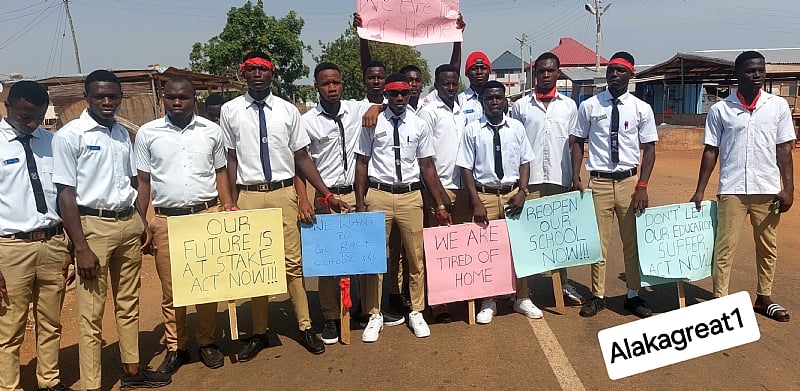The Presbyterian Nursing and Midwifery Training College in Bawku, Ghana, has been closed since November 22, 2024, leaving students stranded and their academic futures uncertain. Student leaders, speaking on behalf of the entire student body, have voiced their deep frustration and anxiety over the prolonged closure, emphasizing the detrimental impact on their education and the potential consequences for Ghana’s healthcare system. They argue that the continued closure is unjustified, particularly given that the college had previously operated even during periods of heightened conflict in Bawku. The students believe the current calm in the region provides ample opportunity for the resumption of academic activities and accuse the college leadership and Presbytery of using the conflict as a pretext for inaction. They demand immediate action, urging the college to either reopen or facilitate their transfer to other institutions within the Upper East Region.
The students’ primary concern revolves around the disruption to their education and the uncertainty surrounding their future. The indefinite closure has left them in limbo, unable to progress in their studies and unsure when or if they will be able to complete their training. This uncertainty has created significant stress and anxiety among the students, many of whom have invested considerable time, effort, and resources into their education. The final-year students are particularly affected, as the closure threatens their ability to sit for crucial examinations and graduate, potentially jeopardizing their careers. The students emphasize that their plight extends beyond their personal ambitions; it represents a significant threat to Ghana’s healthcare system, which relies on a steady supply of qualified nurses and midwives.
The students challenge the rationale behind the continued closure, pointing out that the college had previously functioned even during periods of intense conflict in Bawku. They argue that academic activities continued despite intermittent gunfire and other disturbances, demonstrating that learning could take place even in challenging circumstances. Given the current relative calm in the region, they believe there is no valid reason for the college to remain closed. They suspect that the conflict is being used as a convenient excuse to mask other underlying issues, and they accuse the college leadership and Presbytery of failing to prioritize the students’ best interests.
The students’ frustration is further compounded by the fact that the college had already implemented a system of operating in two separate locations to accommodate students from both sides of the Bawku conflict. This arrangement, they argue, demonstrates that the college was capable of adapting to the challenging security situation. They question why this existing system cannot be maintained or expanded to facilitate the reopening of the college. The students believe that the college leadership and the Presbytery are shirking their responsibilities and failing to explore viable solutions that would allow students to resume their studies.
In response to the impasse, the students have issued a clear and direct demand: either reopen the college immediately or facilitate their transfer to other government institutions within the Upper East Region. They are unwilling to accept further delays and are determined to continue their education without further disruption. They believe that a transfer to other institutions would provide a practical solution, allowing them to complete their training while the situation in Bawku is fully resolved. This decisive stance demonstrates their commitment to their education and their refusal to be passive victims of the ongoing closure.
The students have appealed to national leaders, including President John Dramani Mahama, the Minister of Health, the Minister of Education, and the Minister of Interior, to intervene in the matter. They have framed their plight not just as an educational issue but as a national concern with far-reaching implications for Ghana’s healthcare system. They believe that the continued closure of the college represents a significant loss of potential healthcare professionals and that urgent action is required to address the situation. Their appeal to national leaders underscores the seriousness of the issue and their hope that intervention at the highest level will bring about a swift resolution. The students conclude their statement with a plea for divine intervention, reflecting the depth of their concern and their hope for a positive outcome. Their appeal signifies the importance they place on their education and their desire to contribute to the healthcare needs of their nation.














